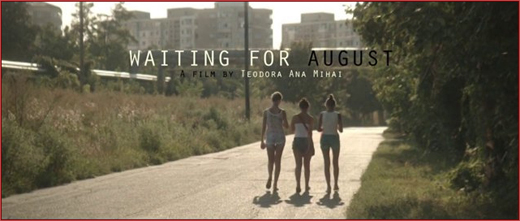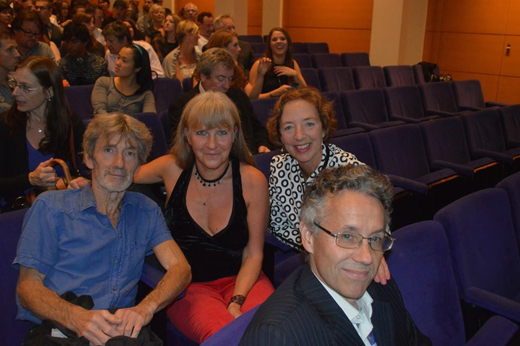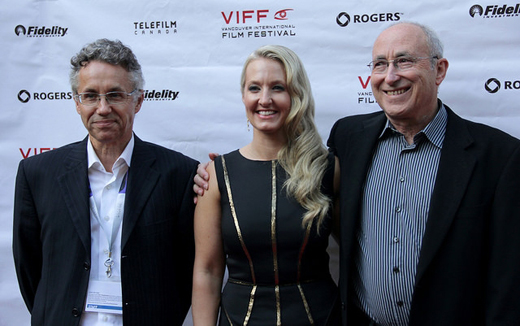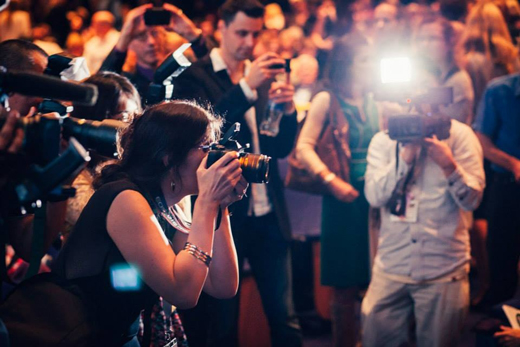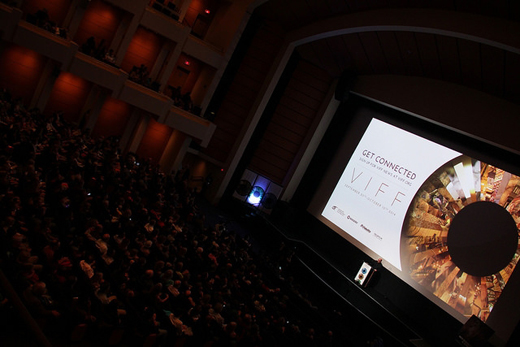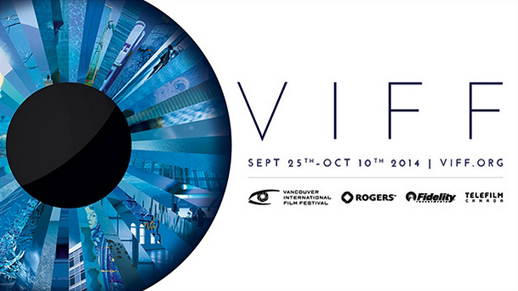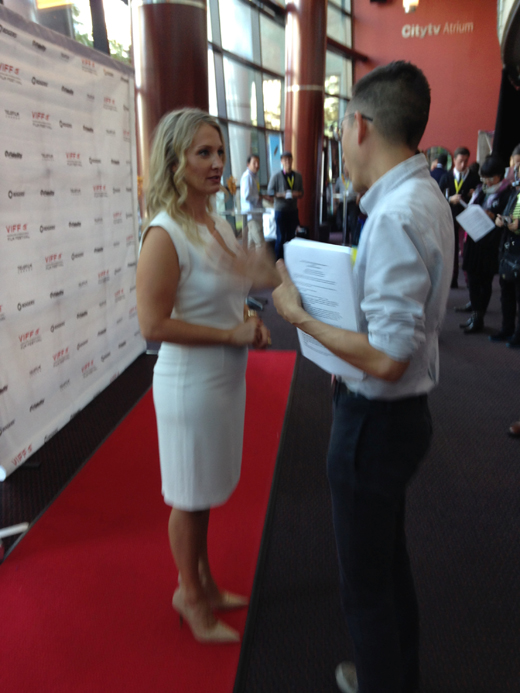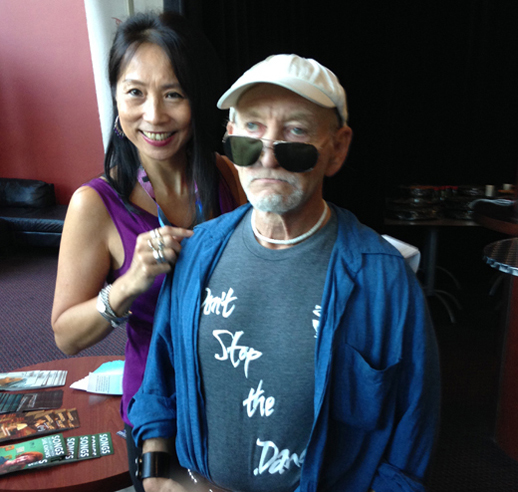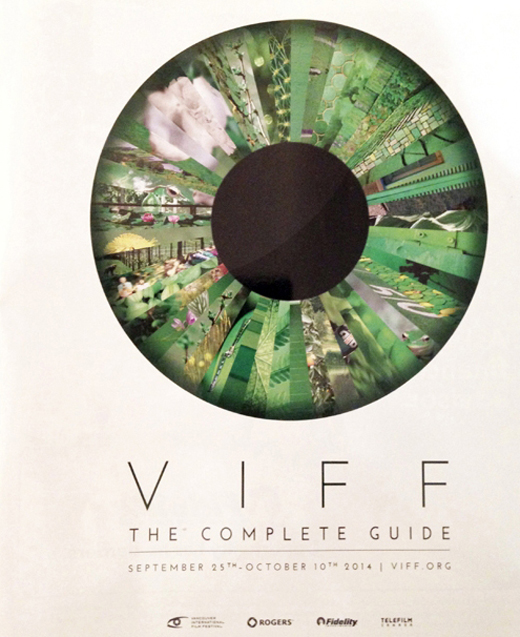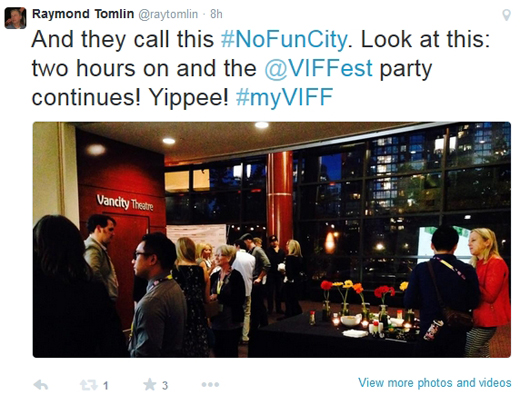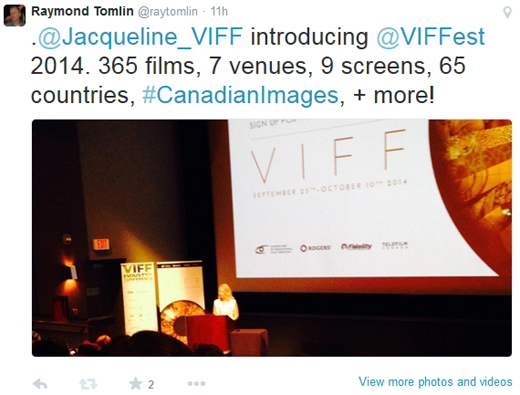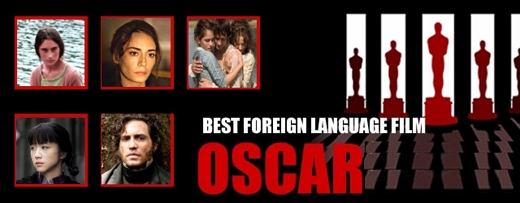
The criteria that cinephiles set for which 40+ films they’ll take in at our annual autumn Vancouver International Film Festival varies.
Some folks want to make sure that they see every one of the films that took the 2014 Cannes Film Festival by storm, while other folks feel that taking in all of the screenings of award winning films arriving from festivals that span our globe — Sundance, San Sebastián, Tribeca, Instanbul, Seattle, Shanghai, Karlovy Vary, Berlin, Newport Beach, and Venice, just to name a few — rank as must-sees at our beloved festival by the sea.
Others, looking ahead to the 2015 87th Academy Awards — set for Oscar Sunday, February 22, 2015 — want to ensure that they’re part of the “in crowd” that has seen more than a handful of the films that have been nominated by their respective countries for the prestigious Best Foreign Language Film Oscar. And thus we set our VIFF task for the day …
Best Foreign Language Oscar Contenders Screening at VIFF 2014
Haemoo (South Korea)
Turning a real-life human trafficking tragedy into a comment on social inequality and the cost of survival, Haemoo dramatizes a stark nautical ordeal fraught with tension, the meticulously crafted production having generated widespread critical acclaim and healthy domestic box office, even if the subject did spark associations with the Sewol ferry disaster. Produced and co-written by internationally recognized Korean auteur Bong Joon-ho (Snowpiercer, The Host) this directing debut by helmer-scribe Shim Sung-bo echoes Bong’s trademark cynical vision of human nature. A gripping cinematic ride, with powerful imagery, a simple and accessible story and a stellar performance from Kim Yoon-seok, Haemoo is set in 1998, three years before the Sewol incident, and offers a journey into darkness that begins when trawler captain (Kim) finds himself broke (and broken), his fortunes hit hard by the fallout of the Asian financial crisis.
Living Is Easy with Eyes Closed (Spain)
In David Trueba’s whimisical feature début, a trio of misfits set out to meet the Beatles, traveling across Spain in 1966 to meet their idol John Lennon on the set of How I Won the War, in hopes of clarifying some lyrics they couldn’t quite understand. Inspired by the true story of Spanish schoolteacher Juan Carrión Gañ án, as Stephen Farber writes in the Hollywood Reporter, “This small gem offers a lovely evocation of Spain as well as a touching tribute to an unforgettable moment in time when the Beatles seemed to offer brand new possibilities, the idea that strawberry fields might indeed go on forever.”
To Kill A Man (Chile)
A quiet drama that cares as much about familial alienation as with getting away with murder, Alejandro Fernandez Almendras retells a true story of last-ditch self-defense, about a timid man who does what he must to protect his family. To Kill A Man is a grim, fat-free revenge thriller that extracts an impressive degree of moral equivocation from its exceedingly simple premise of a family man, tormented by neighborhood thugs, who resorts to unseemly measures when the authorities fail him. Almendras’ début feature is a slow burner, bearing some of the eerie social disquiet of pre-eminent Chilean auteur Pablo Larrain’s work. A grand jury prize winner at Sundance, this hard-edged best foreign film nominee has emerged as one of the early favourites at VIFF 2014.
The Golden Era (Hong Kong)
Ann Hui’s ambitious, lustrously mounted biography of eminent feminist Chinese novelist, poet and essayist Xiao Hong declares its intentions right from the outset, opening with a black-and-white shot of Xiao Hong (played with gleaming intelligence by Tang Wei), who directly addresses the audience, stating her name and when and where she was born and died. Crucially, it is the only time Xiao herself breaks the fourth wall. The Golden Era’s title refers to a more introspective sense of time and opportunity, but can also be taken as an ironic comment on the 1930s, an especially tumultuous period in Chinese history that saw the rise of the Communist party and the invasion by the Japanese. Handsomely mounted with a score that resists a ripe opportunity for excess romanticism, The Golden Era offers sophisticated storytelling, narrative and historical sweep, and a meticulous re-creation of a China long since passed.
The Gambler (Lithuania)
A feature début so self-assured as to really only ever only be marred by its show-offiness, the Latvian/Lithuanian co-production, The Gambler, which played in competition at the Marrakech Film Festival earlier this year, marks director Ignas Jonynas’ emergence on the scene as a talent to keep an eye on. Taking a skewed, and ever so slightly surreal story about a team of emergency medics who develop a highly successful and lucrative game involving betting on when patients are going to die, and basing the odds on complex and arcane analyses of the medical information to which they have access, the film, to its credit, is less interested in this high concept than it is in its lead character, the bearlike Vincentas (Vytautus Kaniusonis), his moral descent and eventual redemption.
Rocks in My Pocket (Latvia)
A very personal animated film that explores depression and suicidal tendencies with wit, surreal invention and insight, New York-based Latvian director Signe Baumane (Teat Beat of Sex) gets personal in her depression-themed feature that combines paper-mache sets and hand-drawn animation. This partially autobiographical tale chronicles the lives of three generations of Baumane’s family, covering roughly a century of history, during which the small Baltic state (current population: just under 2 million) was occupied several times. But though the film’s historical-political background provides texture and interesting parallels — since depression could be seen as an undesired subjugation of the mind — Rocks in My Pockets is mainly concerned with a very subjective personal history of three generations of women, all prey to depression and dark thoughts. Animated in a striking combination of real paper-mache sets and props and hand-drawn 2D figures, the film explores with wit, surreal invention and insight something left far too often undiscussed.
The Liberator (Venezuela)
An impressively mounted, but perhaps overly truncated take on a great historical figure about whom much more needs to be known, the extraordinary story of Simon Bolivar onscreen in two hours represents a Sisyphean struggle of the first order. This physically impressive Venezuelan-Spanish co-production clearly lays out both the ideological forces at play in the early 1800s and the nature of the physical challenge of pushing the Spanish out of South America after 300 years of control. Edgar Ramirez does an entirely respectable job limning Bolivar’s idealism, bravery and natural leadership qualities, although the man himself remains elusive , more icon than flesh-and-blood being. Still, a compelling film to watch, and a VIFF film the audience appreciated with rapt attention, and appreciation.
Two Days, One Night (Belgium)
In this impassioned and moving new film by Belgian sibling directors Jean-Pierre and Luc Dardennes brothers, another excellent social-realist working-class drama, Marion Cotillard appears in every scene as the frantic Sandra, who learns in the opening minutes that she’s been laid off from her job at an energy plant just before the weekend. Fighting off tears in the mirror, she discovers a semblance of hope in the promise of a new vote among her co-workers come Monday. A mesmerizing odyssey, with no soundtrack or melodramatic confrontations, the Dardennes plunge viewers into a terrifying world of unknown variables. Two Days, One Night emerges as another hugely admirable entry in the Dardenne canon: thoughtful, humane and superbly composed.
Sorrow and Joy (Denmark)
Danish auteur Nils Malmros (Tree of Knowledge) revisits a personal tragedy, turning the camera on his own tragic backstory in Sorrow and Joy, a deeply personal auto-biography about how the director’s wife murdered their infant daughter in 1984. In this drama starring Jakob Cedergren and Helle Fagralid, Malmros paints an unflinching portrait of himself as critical and emotionally neglectful, the story told through the device of a psychiatrist’s questioning, and in flashback to the start of the couple’s relationship. At the same time, we watch the director attempt to ensure his wife receives treatment in a psychiatric hospital rather than a prison.
Mommy (Canada)
A funny, heartbreaking and utterly original work from 25-year-old Canadian enfant terrible Xavier Dolan — the writer and director of five critically acclaimed movies, and co-recipient of a jury prize at Cannes — Mommy is a blast of pure cinema, an intense, intimate drama about a harried mother and her troubled teenage son that vividly captures a range of exhilarating emotions from elation to despair. Dolan plays with well-chosen music and strategic silence, demonstrating a more experienced filmmaker’s technical proficiency, coupled with the bold exuberance of youth. With Mommy, Xavier Dolan has solidified his standing in the pantheon of great directors with his new work, a film of explosive freshness, offering a delicate balance between humour and tragedy that’s simply intoxicating. Dolan’s Mommy is a beautifully realized film that is certain to speak to the VIFF crowd.
Corn Island (Georgia)
A virtually wordless, elegant tone poem — and all the more captivating for its quietness — Georgian director George Ovashvili’s top prize winner at Karlovy Vary is, as Variety’s Peter Debruge suggests, “an astonishing feat of cinema”, a life and death fable that tracks the lives of an aging Georgian farmer (Ylias Salman) and his innocently flirtatious granddaughter (Mariam Buturishvili), who work together to build a rudimentary wooden shack and plant a crop of corn on a temporary island in the middle of the Inguri River, amidst the warring factions of Georgia and the republic of Abkhazia. Audacious, powerful, utterly compelling, and melancholy, Corn Island represents the best of foreign language film at the 2014 Vancouver International Film (we saw it in preview), and is a must-see at our festival.
Winter Sleep (Turkey)
Palme D’Or winning Turkish photographer, screenwriter, actor, and film director Nuri Bilge Ceylan can do no wrong, his latest — Winter Sleep — masterful and multi-layered, inspired by a Chekhov short story, the film — at three hours and sixteen minutes (not an unusual length for a Bilge Ceylan film) — offering a richly detailed, subdued and mesmerizing depiction of the full spectrum of the human condition.
Novelistic in structure, Winter Sleep revolves around Aydin, a retired stage actor (Haluk Bilginer) — a bearded, middle-aged grouch who operates a hotel in Cappadocia, high on a hill above inherited land owned by his late father — and his much younger wife, Nihal (Melisa Söezen), who spends her days gazing out the window, bored with their empty, privileged lives.
From Eric Kohn’s review on Indiewire …
Winter Sleep contains a few surprising moments of levity, from scenes of drunken men dueling with Shakespeare citations, to the peculiar nature of Aydin’s relationship with a disadvantaged horse. At one point, a rabbit-hunting session leads to one of the movie’s darker signifiers, while conveying a strange feeling of existential uplift on the character’s terms. Such signifiers are never forced, however, as each telling moment arrives in the context of the movie’s enthralling pace.
In its broadest terms a character study, as Ben Croll writes on Twitchfilm:
The film can be easily criticized as being too talky, overlong and a tough sit. All of which is entirely true! But there is some kind of cumulative value in the stacks of minutes and words that pile up and topple onto each other. Something that is also reflected in Ceylan’s rather agoraphobic decision to keep things mostly indoors for the duration of the film. Twisting the familiar, a simple interaction or the inside of a living room, into something heightened and uncanny highlights the film’s final verdict on Aydin. To turn the idiom around, he is proof of the evil of banality.
Winter Sleep. Another can’t miss at our Vancouver International Film Fest.
Beloved Sisters (Germany)
An exquisitely detailed period piece, as Variety’s Scott Foundas writes …
An enthralling, gorgeously mounted depiction of the complicated relationship between the post-Enlightenment writer and philosopher Friedrich Schiller and the sisters Charlotte von Lengefeld (who would become his wife) and Caroline von Beulwitz (his eventual biographer), Beloved Sisters maintains novelistic narrative density in its enveloping canvas, as director Dominic Graf sets about to create an unusually intelligent costume drama of bold personalities torn between the stirrings of the heart and the logic of the mind, all the while casting his revealing gaze upon Western Europe’s bumpy transition from the 18th to 19th century.
Be forewarned: another long sit (171 minutes), but very much worth it.
Force Majeure (Sweden)
One of the key films about which VIFF’s Director of Programming, Alan Franey, waxed poetic at the opening press conference of the 2014 Vancouver International Film Festival, as Boyd van Hoeij writes in The Hollywood Reporter, “An avalanche does no bodily harm but leaves a Swedish family entirely wrecked nonetheless” in Force Majeure, an ice-cold Swedish drama about a family torn apart by cowardice. Director Ruben Östlund’s new film comes across like Ingmar Bergman with a wicked streak.
Writes Peter Debruge in Variety …
In its very calculated way, the film serves to document all that will inevitably be omitted from the family’s official record of their five-day ski vacation, as suggested from the first shot, in which this seemingly perfect clan — father Tomas (Johannes Bah Kuhnke), mother Ebba (Lisa Loven Kongsli), son and daughter (real-life siblings Vincent and Clara Wettergren) — poses for a contrived group portrait on the slopes. Whereas they self-edit their memories to fit their own narrative, Östlund observes the minutiae, right down to the bathroom breaks.
The film uses the daily structure of life on vacation to show us small variations in how things work between Tomas and Ebba. Once the fractures begin to appear in their marriage, things fall apart very quickly over the five-day skiing holiday in the French Alps, a pricey-looking getaway for a well-heeled couple.
Theatrically structured, yet a bracingly cinematic film, Force Majeure takes the family, and us, on a ski trip down a black run into a blacker chasm.
![]()
![]()
![]()
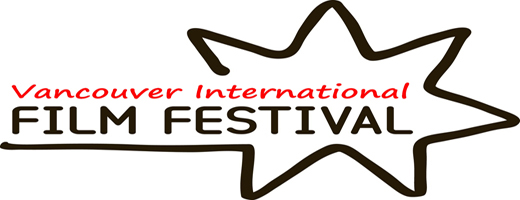
Have we mentioned that the film festival is not about force-fed, mindless Hollywood pap, but is rather all about offering an honest reflection on the human condition (ain’t no passive-aggressiveness goin’ on here), and that chances are the films screening at VIFF are likely not to be an easy sit?
Bottom line: either you love film, or you don’t. Either you’re willing to confront your demons (the characters on screen often represent a disturbing, and often unexplored, aspect of the deepest, inner core of your being, your id), or you’re not. VIFF as therapy: you better believe it.
Final note: we’ll update the list of Best Foreign Language Oscar nominees screening at VIFF 2014 as the information becomes available, and point you back in this direction periodically over the course of the next four weeks.
